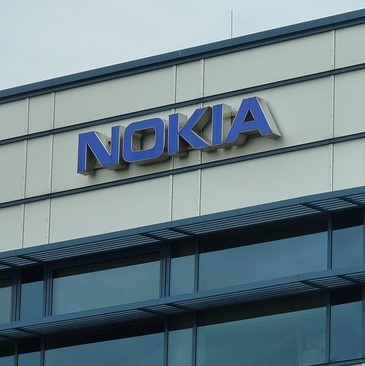
Also in today's EMEA regional roundup: Colt saddles up with VMware for SD-WANnery; KPN, Proximus tick over in Q1; BBC iPlayer plays a (Peaky) blinder.
Nokia has signed a deal with Karel, a Turkish electronics company, to manufacture 4G and 5G basestations in Turkey. The companies intend to start producing 4G basestations for the local market by the middle of this year, and 5G basestations are expected in time, as 5G services are scheduled to become commercially available in Turkey in 2023.
UK-based Colt Technology Services has teamed up with VMware to offer managed SD-WAN services to enterprises. Specifically, VMware is joining Colt's "Partner Hub" ecosystem, combining VMware's SD-WAN chops with Colt's connectivity.
Dutch incumbent KPN saw adjusted EBITDAal (earnings before interest, tax, depreciation and amortization, after leases) rise 4.5% year-on-year in the first quarter, to €593 million (US$625.2 million), on revenue that climbed 1.6%, to €1.31 billion ($1.38 billion). In his upbeat commentary. on the results, CEO Joost Farwerck declared the company "on track" to deliver on its "strategic and financial ambitions," and boldly claimed that KPN is "now recognized as the best mobile network in the world for the first time ever."
Just across the border, in Belgium, Proximus also seems to be chugging along fine, with group revenue up 2.7% to €1.08 billion ($1.13 billion) and EBITDA up 0.4%, to €448 million ($472.3 million). CEO Guillaume Boutin acknowledged the impact of Russia's invasion of Ukraine on its operations, "accentuating the steep inflation trend and further impacting global supply chains, which were already fragile after the Covid crisis."
As Netflix begins to look wobbly on its perch, the BBC's iPlayer streaming service has enjoyed its best quarter ever, with viewers streaming programmes 1.8 billion times in the first three months of the year, driven by the popularity of shows such as Peaky Blinders and The Apprentice. The frankly odd Australian outback drama, The Tourist, provided the year's most popular individual episode so far, with the first episode streamed 6.1 million times.
Arcep, the French communications regulator, has partially backed Bouygues Telecom in its dispute with Orange over fiber-to-the-home connection fees in very high-density areas. Bouygues had asked Arcep to force Orange to amend its contract so that any refunds of contributions to set-up fees occur when the "outgoing" FTTH commercial operator's line is cancelled, and not when the FTTH line is taken over by the next commercial operator: Arcep acceded to this request, but did not agree to a secondary request regarding a change in the calculation method used in relation to such fees.
MTN Nigeria saw its number of mobile subscribers decline by 1.3 million year-on-year in the quarter ended March 31 as new regulatory restrictions on SIM sales and activations came into force. Despite this, service revenue increased by 22%, to 469.8 billion Nigerian Nairas ($1.13 billion). The operator also announced the arrival of a new chief operating officer, Hassan Jaber, stepping into the shoes of Mazen Mroue, who becomes MTN Group chief information and technical officer.
Telecom Italia (TIM) has announced the departure of its security boss, Stefano Grassi, who is leaving to "undertake a new managerial path," according to a TIM statement.
— Paul Rainford, Assistant Editor, Europe, Light Reading
Read more about:
EuropeAbout the Author(s)
You May Also Like












